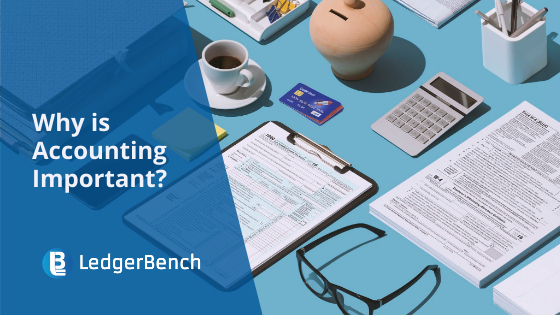Why is Accounting Important?

Accounting is an integral part of every business as it helps the managers, business owners, stakeholders and investors to evaluate the financial performance of the business. Accounting helps in providing important financial information regarding profit and loss, assets and liabilities, costs and earnings for decision making and controlling processes within the business.
The major function of Accounting is to record financial transactions in the books of accounts to identify, measure and communicate economic information. Even, the tax reporting system requires you to keep books of accounts at a minimum level that tracks income and expenditure.
What is the purpose of Accounting?
Accounting is referred to as “language of business.” It is a medium to communicate vital financial information to business owners and others for the decision-making process.
Following are the main objective of Accounting:
- Recording Transaction:
The primary role of accounting is to maintain a systematic, accurate and complete record of daily financial transactions of a business. These records are the backbone of any accounting system. Business owners should be able to retrieve and review the financial information whenever required.
- Budgeting and planning:
Business owners need to plan how they allocate their limited resources including machinery, equipment, labor and cash towards accomplishing the objectives of the business. Budgeting and planning help business to anticipate the future of the business and plan ahead.
- Decision Making:
Accounting assists managers in decision making and business owners in developing policies to increase the efficiency of business processes. Some examples of decisions based on accounting information include the price to be charged for products and services, financing business opportunities and the resources required to make these products and services.
- Business Performance:
Businesses can determine how well their business is performing by using accounting reports. The financial reports are the key factor and a reliable source for comparing companies key performance with that of their past as well as competitors.
- Financial Position:
The financial position generated at the end of the accounting cycle reflects the financial condition of a business at that time. It indicates how much funds has been used, the profit or loss and assets and liabilities and how much capital has been invested.
- Liquidity:
A common reason for business failure is the mismanagement of cash. Accounting helps in determining the liquidity of the business meaning cash and other liquid resources available to pay off the financial commitments. Financial information removes the risk of bankruptcy.
- Financing:
In order to apply for a loan for securing investments for the business, accounting helps businesses to prepare historical financial records as well as financial projections.
- Control:
Accounting keeps checks on organizations activities and helps avoid theft, losses, fraud, errors, damage, obsolescence and mismanagement. The internal controls safeguard the business asset and avoid long term losses.
- Legal requirements:
It is mandatory by law to maintain accurate financial records of business transactions and share the report with shareholders, regulators and tax authorities. The financial information is also required for filing direct and indirect taxes.
Why is accounting useful for Small business owners?
At the start of a business, poor financial management is considered to be a business failure. Small businesses have limited budgets and resources, accounting helps in business growth and development.
Accounting is important for small business because of the following reasons:
- Accounting helps to detect and avoid frauds and theft by employees, customers and suppliers.
- Business financial statements help to better understand financial audits and face them.
- Accounting gives you a better grasp of the well-being of the business. This can be done by learning balance sheets, cash flow statements and profit and loss statements.
- It helps to keep track of the cash flow.
- Accounting helps you to better understand fixed cost, variable cost and how to accurately cost your project. This way you won’t lose money on a project you thought would be a great earner.
Why is Accounting Important?
Accounting necessities data collection and organization of information in a way that it can be easily interpreted by the management. Business owners need to keep tabs on operating costs, changing revenues and dividends to make strategic decisions.
- Accountants help to analyze financial data and determine areas of improvement. This is crucial for the long term benefit of the business.
- They help to prepare financial statements based on GAAP that are Generally Accepted Accounting Principles.
- You will get customise advice based on business needs and requirements
- Accountants can help file taxes and avoid audits and timely and accurately filing taxes.
- Involving a third party would mean that you’ll receive unbiased information which is objective and verifiable.
- An accountant helps in determining budgeting and monitoring cash flow statements. They act as a financial advisor who’ll help to avoid hurdles in between.
Along with hiring an accountant, small business owners are using online accounting software. The software syncs the accounting system with the banks and helps get real-time information. The software can help to view accounting reports, send out invoices and create expense claims on the go.
